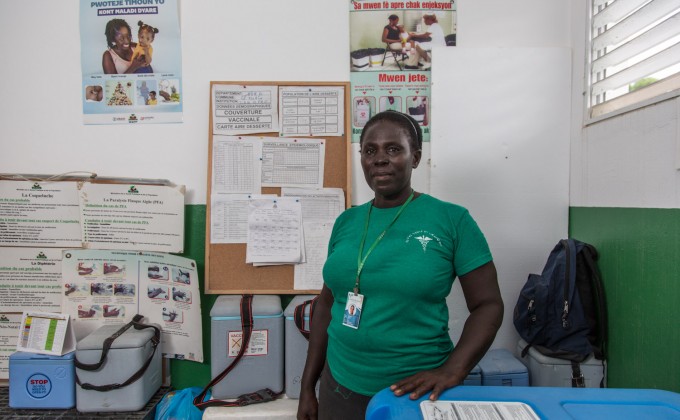
Following the outbreak of the COVID-19 pandemic in Haiti in May 2020, the feminist organizations Solidarite Fanm Ayisyèn (SOFA), Fondation TOYA, Asosyasyon Fanm Soley d'Ayiti (AFASDA), Fanm Deside and Koòdinasyon Fanm Sid (KOFASID) decided to collaborate to conduct a study to measure the impact of the pandemic on gender-based violence (GBV) and women's empowerment under the technical direction of Sabine Lamour (sociologist and general coordinator of SOFA). In order to conduct this study, these five feminist organizations received support from CECI through the Women's Voice and Leadership (WVF), a project funded by the Canadian government through Global Affairs Canada (GAC).
In accordance with their identity as feminist organizations fighting against gender inequalities in Haiti, the objectives of the study were the following:
The research had a comprehensive aim and was conducted using a qualitative and quantitative methodological approach. It is part of an intersectional approach that identifies the ways in which discriminations linked to power relations are connected, perpetuated and maintained in the lives of women and girls in Haiti during the pandemic. The research data covers the period from 2018 to 2021. The aim is to compare violence from different types of crisis: political, health, and safety. The study revealed six major findings:
1 - At the time of the outbreak of COVID-19 in Haiti, all civil society actors recognized that the government had not implemented appropriate measures to protect the population. In addition to the important lack of sanitary infrastructure in the country, the government showed no real desire to limit the amount of people who were affected by the virus.
2 - The negative socio-economic consequences of COVID-19 strongly affected women. Because of the gendered division of labour in Haitian society, which limits women to small businesses, women were among the first to be impacted by the government measures and the first to see their incomes decrease during the pandemic.
3 - In order to continue offering their services to the population, civil society organizations working on GBV were able to adapt to the demands of the crisis by restructuring themselves. While they are facing many challenges, with the support of international cooperation projects they were able to support the population and be present in the areas left behind by the public administration. For example, the most important women's organizations quickly developed the ability to care for women survivors of violence remotely.
4 - Violence against women and girls did not increase during the lockdown, and the expected increase in violence did not occur. The majority of the population was not put into lockdown. The data shows patterns of domestic violence during the period among couples who were in confinement. The changes in terms of violence against women and girls are explained by the fact that women in affluent areas received help from feminist organizations when they faced domestic violence, which had not happened before. Women are more likely to experience sexual and physical violence during times of political unrest.
5 - The data highlights how individuals managed the crisis, as reflected by the saying se mèt kò ki veye kò. To ensure the well-being of their communities, women played a key role as caregivers for their loved ones and families. During our interviews, respondents spoke of symptoms related to "ti lafyèv", confirming that the coronavirus did arrive to Haiti. However, thanks to the efforts of women to distribute plants of traditional medicine, the country was able to weather the first stage.
6 - While the health crisis certainly affected individuals, it also created opportunities, particularly for women and women organizations, and confirmed their ability to act.
The organizations SOFA, AFASDA, Fanm Deside, Fondation TOYA and KOFASID used these results to identify several possible actions to strengthen their ability to support women and girls whose vulnerability increases during health, political and security crises. These actions include:
These actions aim to anticipate violence resulting from health, political or security crises through the awareness-raising and community mobilization actions that it recommends; but also to better arm ourselves with regard to future crises in order to be more reactive, particularly through better organized and better equipped remote support.